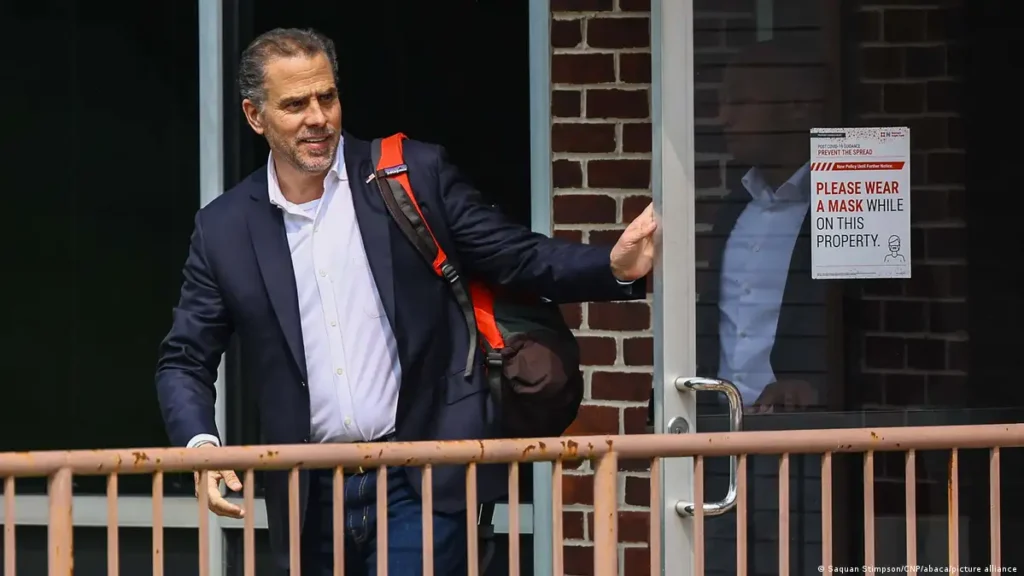Newsmatro

In a surprising turn of events, Hunter Biden, the son of President Joe Biden, has been indicted on two federal charges related to a firearm purchase in 2018. The indictment accuses Hunter Biden of knowingly deceiving a firearms dealer and providing false information on a federal firearms form. The charges were brought after a plea agreement, which had been criticized for its leniency, fell apart over tax and gun-related charges.
The Charges
The indictment alleges that Hunter Biden deceived a firearms dealer when purchasing a Colt Cobra 38SPL revolver on October 12, 2018. He is also charged with falsely filling out a federal firearms form by denying any addiction to narcotics, despite his acknowledgment of drug addiction at the time. Moreover, he is accused of knowingly possessing the revolver despite federal restrictions against firearm ownership by drug addicts.
If convicted, Hunter Biden could face a maximum sentence of 25 years in prison, with potential sentences typically falling short of the maximum, according to the Justice Department.
Plea Agreement Fallout
The latest indictment comes after a plea agreement involving Hunter Biden unraveled earlier this year. Originally, he was set to plead guilty to two misdemeanor charges for failing to pay taxes in 2017 and 2018, which he has since paid. Additionally, he was expected to enter a pretrial program for a gun charge, with the potential for the charge to be dropped upon program compliance.
However, U.S. District Judge Maryellen Noreika refused to accept the plea agreement due to disputes between Hunter Biden’s lawyers and federal prosecutors regarding its terms.
Legal Experts Weigh In
Legal experts have commented on the severity of the three charges brought against Hunter Biden compared to the original plea agreement. The charges have raised questions about their necessity, given the earlier deal’s potential leniency.
Former U.S. Attorney Harry Litman described the gun charges as a “raw deal” and questioned the need for such charges, especially given the circumstances surrounding the plea agreement.
Former federal prosecutor Andrew Weissmann criticized the new gun charges, referring to them as displaying a “lack of judgment” and predicted potential challenges from the defense.
Congressional Inquiry
In response to the unraveling of the original plea agreement, three House Republican chairmen have requested documents related to the deal. They seek information described in media reports about how the plea deal fell apart.
According to Rep. James Comer, head of the Oversight and Accountability Committee, the plea agreement “fell apart after a federal judge refused to rubber-stamp it.” However, Hunter Biden’s lawyers have accused the House Republicans of interfering with the ongoing Justice Department’s investigation.
Tax Evasion Allegations
Part of the plea agreement involved Hunter Biden’s failure to pay taxes. Prosecutors stated that he earned $2.4 million in income in 2017 and $2.1 million in 2018, derived from various sources, including Ukrainian energy firm Burisma, a Chinese development firm, domestic business interests, and legal services. An assistant U.S. attorney, Leo Wise, revealed that despite these earnings, Hunter Biden did not pay his corporate and personal taxes during that period.
In court, Hunter Biden claimed that a “third party” had paid his back taxes along with interest and fees, pursuant to a personal loan he had not begun repaying.
The latest indictment against Hunter Biden adds a new layer of complexity to the ongoing legal issues surrounding the President’s son. As the legal proceedings continue, political and legal experts will closely watch the developments and their potential implications for both Hunter Biden and the Biden administration.